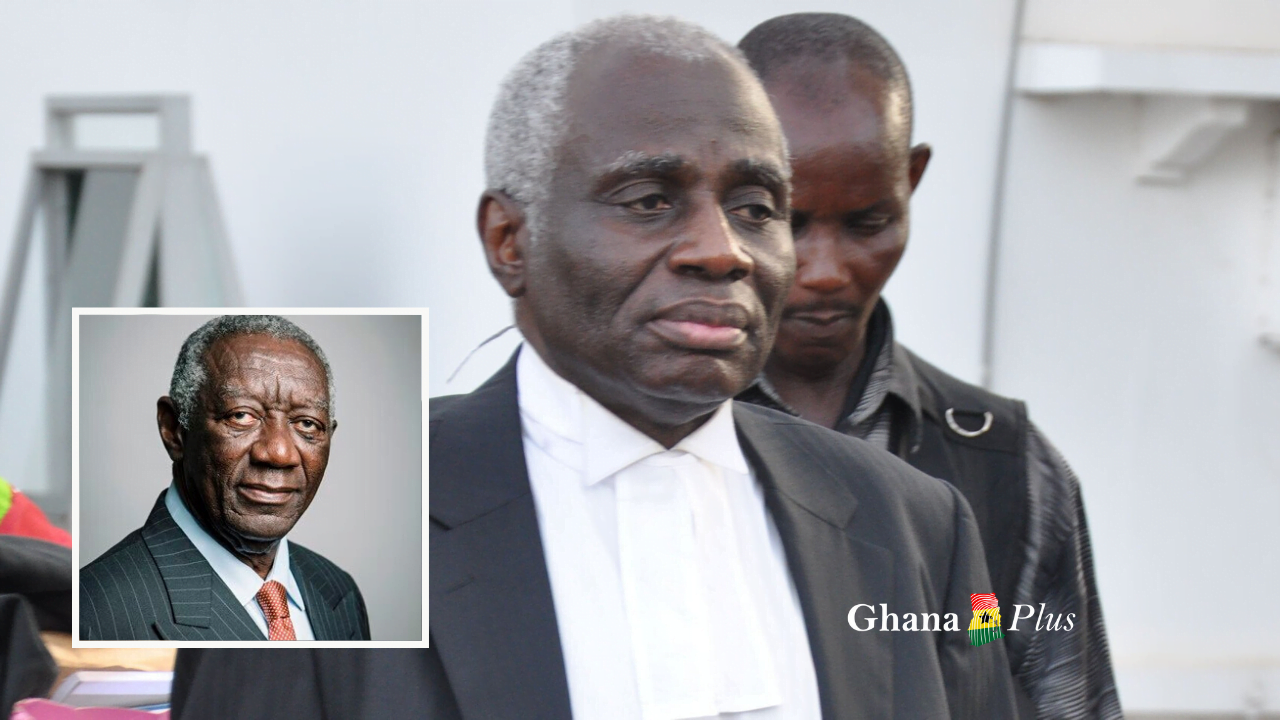News
My quest was for justices not Kufour’s mercy – Tsatsu Tsikata
Published
4 years agoon
By
Vida Essel-Lamptey
The former Chief Executive officer of the Ghana National Petroleum Company (GNPC), Lawyer Tsatsu Tsikata has said that he rejected the presidential pardon granted him by Ex-President J.A Kufour because he needed justice, not mercy.
“My quest was for justice, it was not for mercy. I had no need for his mercy or his favor because I was seeking justice and he knew at the time that I had appealed,” Tsatsu Tsikata said.
The former Statesman made these remarks on TV3’s Hot Issues on Thursday, June 18, 2020.
According to Tsatsu Tsikata, having his appeal heard, cleared and vindicated of the charges was of more importance than a pardon because he was innocent.
He noted, accepting the pardon could have meant admitting guilty to charges leveled against him and that would have derailed his effort towards justice.
The pardon means that your conviction stands but we are taking away the punishment so you do not have to experience the punishment that comes with the crime, but I wasn’t prepared to accept that, I was determined to have my guilt set aside and to have an acquittal and discharge as the outcome of that case.
Recounting the incident twelve (12) years on, Lawyer Tsikata described as strange and outrageous the decision that saw him in prison on June 18, 2008, to November 2011.
Tsatsu Tsikata at GNPC
Tsatsu Tsikata was the CEO of GNPC from October 1988 to December 2000 under the administration of Ex-President Jerry John Rawlings.
Causing Financial Loss to the State and the Trial
He was accused of willfully causing GH¢230,000 financial loss to the state and subsequently arraign before various courts in a trial described as the longest ever involving a former statesman in the country’s history.
The trial lasted for six years. On June 18, 2008, he was pronounced guilty by Justice Henrietta Abban.
Rejection of Presidential Pardon
He was later granted a presidential pardon by the former President of Ghana John Agyekum Kufuor after serving over two years of his five years jail sentence in the Nsawan prison but rejected the pardon describing it as the highest point of hypocrisy.
However, on November 30, 2011, he was acquitted and discharged by the Court of Appeal.
Source: Vida Essel-Lamptey / GhanaPlus.com
You may like
-


Mahama leads NDC to mourn with Kufuor over wife’s passing
-


Saboba NPP get Ghc 5000 to support the ongoing EC registration exercise – Jawol Binapadam
-


Rwanda suspected serial killer arrested after bodies found in kitchen
-


The most powerful tool for change is the right to vote – Mahama
-


PFJ was a mere state resource looting platform – Minority
-


Canadian woman jailed 22 years for mailing Donald Trump ricin



Mahama leads NDC to mourn with Kufuor over wife’s passing
Former President John Dramani Mahama on Wednesday, October 4 led a delegation from the National Democratic Congress (NDC) to visit...


Former First Lady of Ghana Theresa Kufuor reported dead
The former First Lady of Ghana and wife of Ghana’s former President, John Agyekum Kufour, Mrs Theresa Kufuor has been...


The most powerful tool for change is the right to vote – Mahama
The 2024 flagbearer of the National Democratic Congress (NDC), John Dramani Mahama, is rallying Ghanaains who have grown disillusioned with...


PFJ was a mere state resource looting platform – Minority
The Minority has descended heavily on the Akufo-Addo-led government for launching a second phase of the flagship Planting for Food...


ECOWAS is desecrating Ghana
The Director of Legal Affairs of the National Democratic Congress (NDC), Mr Abraham Amaliba has said the Economy Community of...


Prof Gyampo elected President of UTAG, University of Ghana branch
A Senior Lecturer at the Political Science Department of the University of Ghana (Legon), Prof Ransford Gyampo have been elected...
